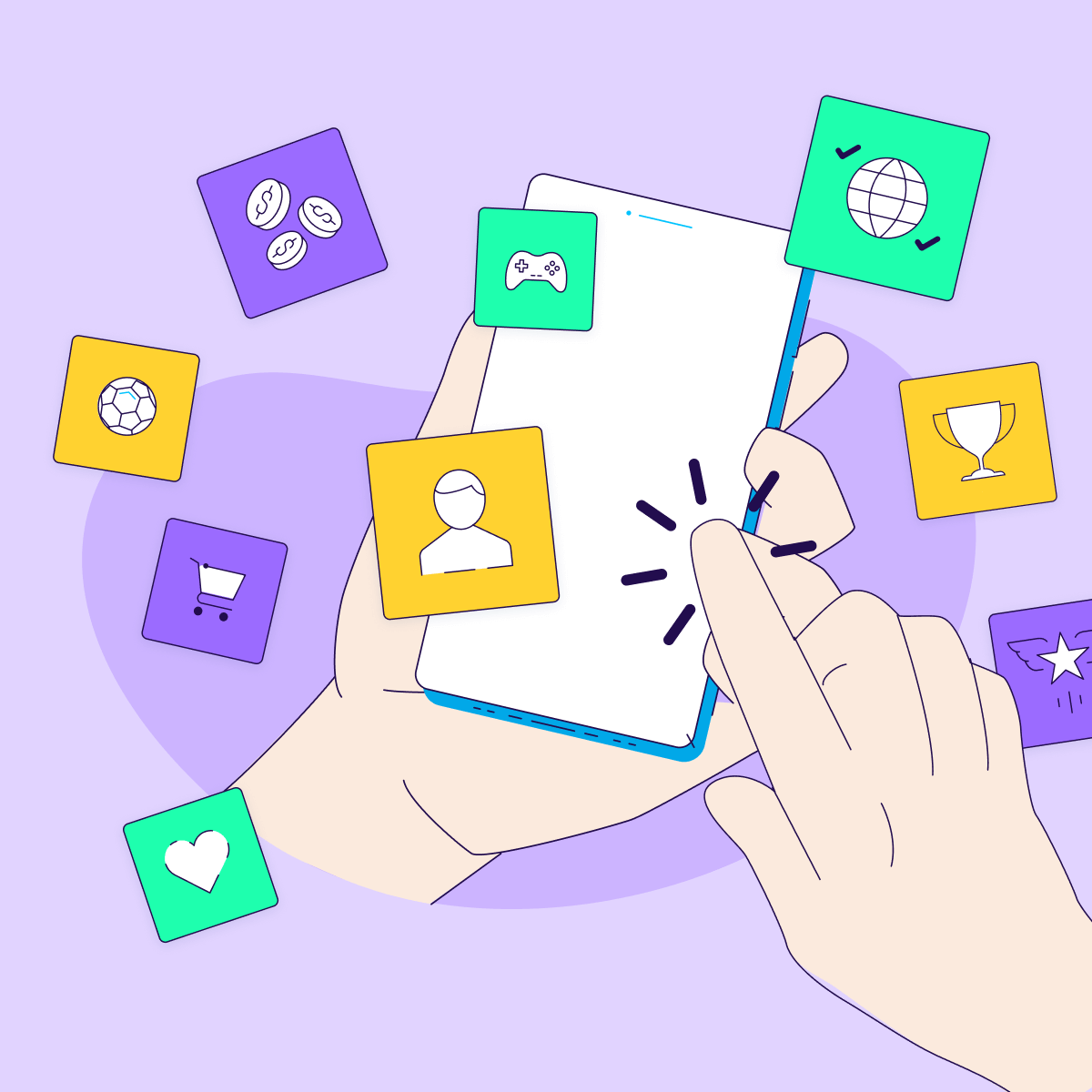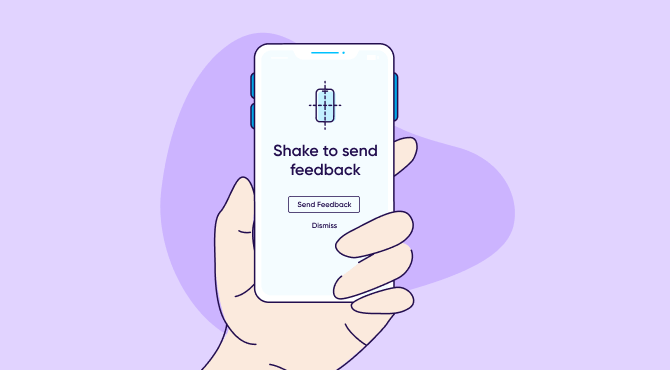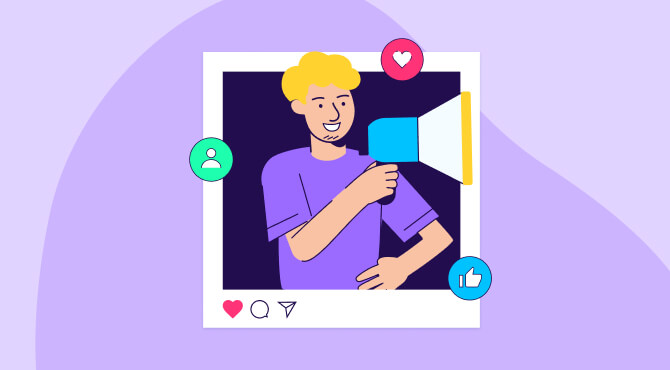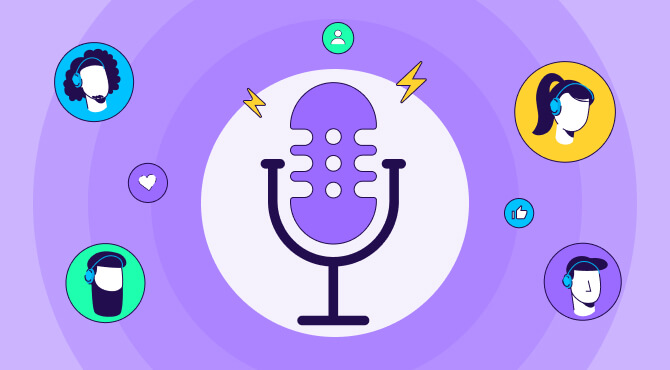What are the main stages of app promotion?
App promotion has three main stages: the awareness or pre-launch stage, the acquisition stage, and the retention stage. Each stage involves different strategies to attract, acquire, and retain users.
Try searching for

How many mobile apps do you use regularly? Five? 15?
Turns out that an average user uses about nine apps daily. Can you imagine how hard it is to create an app that becomes one of those nine? It seems almost impossible.
At the same time, there are more ways to promote your app than ever before, with new online communities and social media channels popping up every month. This guide explains app promotion and shows you 11 creative ways to market your app better. We’ve got examples from some of today’s coolest apps to get your creative juices flowing.
Let’s dive in.
App promotion (also known as mobile marketing) refers to the process of promoting or advertising your app. There are lots of ways to do this, including through your website, social media platforms, search ads, app store optimization (ASO), influencers, PR, and traditional word-of-mouth.
App promotion has three main stages:
To build your user base, you’ll most likely want to market your app to both iOS and Android users. Before you start, you need to be aware of some differences between these groups. iOS users tend to be more affluent and loyal to their devices, boasting a higher satisfaction from the overall experience. On the other hand, Android users are less loyal to specific apps. But they don’t have to opt in to push notifications (they receive them by default), so it’s a little easier to communicate with them and keep your app top of mind.
App promotion is absolutely vital to ensure you’re onboarding new users, getting more sales, and increasing your market share. If you don’t promote your app, chances are it will perish with the rest of the 99.5% of apps that fail.
Here are some of the best marketing tactics you should try to promote your app.
The first thing a user sees when they open your app page is your demo video. In fact, almost 80% of consumers download a mobile app after watching a video that clearly shows how it works. And 73% of consumers said that video is their preferred tool for learning about a product or service.
In other words, video is the perfect avenue to increase app downloads and retention. Your video needs to engage the user and show how your app works. It should also highlight some of the benefits of using your app.

What’s the second thing people look at after the video? The screenshots — especially when the internet is bad and the video doesn’t load.
Good visuals are critical here.
Make sure your app store screenshots highlight the main benefits and features of the app. Also, add captions and more visual elements (like emojis).
You get bonus points if visual elements on one image continue on the next, like a cut-out Instagram post.
Another super visible element on your app store page is awards.
All the top apps can boast award wins, and they don’t just do it for the glory: these external accolades also provide a ton of press, exposure, reviews, and downloads.
Here are some of the top app awards sites you should check out:

You need more product reviews but don’t want to spam your users, so what do you do?
Just reach out to your customers and see how they’re doing. You can ask for in-app feedback manually or through a quick automated survey.
Once you’ve identified your happiest users, you can follow up with an app review request, or better yet, ask how you can improve the experience for them even more. Also, don’t forget to reply to all the negative responses and see if you can solve those issues for customers.
Remember, happy customers are more likely to share your app with their family and friends. So you want to get those reviews, plus some referrals.
Speaking of referrals, word of mouth is your most powerful channel. Keeping your users happy and creating an exceptional user experience is just part of the battle. You should make referrals a part of the user journey by launching a referral or a loyalty program.
Referral marketing is one of those channels that are recession-proof. Start by evaluating your personas and finding out what they really care about. Then, offer rewards they would find meaningful and prompt them to refer their friends at strategic touch points throughout the customer journey.
For example, food delivery app Doordash offers a very successful referral program to customers, restaurants, and “dashers” (the people delivering the food).

As well as recommendations from friends, users also value influencer reviews.
This form of social proof worked wonders for fashion app Screenshop. When it launched in 2017, the app partnered up with Kim Kardashian, who acted as an adviser and owned a part of the business. As you can imagine, Kim posted about the brand regularly, and it went viral. Screenshop has gone on to partner with over 450 retailers and brands and, four years later, was acquired by Snapchat.
Ways to help influencers promote your app include:
Branded newsletters are an incredible treasure trove because they provide unprecedented access to engaged audiences. According to Brian Dean, CEO of SEO tool Exploding Topics, they’re the #1 marketing strategy to use right now.
So, what exactly is a branded newsletter?
One thing’s for sure, it’s not just another boring newsletter from a company or marketing guru. Branded newsletters go out on the same day and time each week, have the same format in each issue, and have a unique brand associated with them. They’re more popular in the marketing niche (good examples are the Morning Brew and MarketerHire’s Raisin Bread), but you can still find really good ones in other niches.

Podcast ads are another great opportunity to promote your mobile app. They’re very inexpensive compared to most other forms of advertising, and they’re gaining significant traction.
The podcasting industry experienced a 19% increase in advertising revenue in 2020 and is projected to hit $2 billion in 2023.
The advantage of advertising on a podcast is that you can make your ad much more personal and relevant to specific audiences based on their interests. You can also get interviewed by podcasters, which is free and can get you even more promotion and brand awareness.
One of the most powerful ways to gain users long-term is through content marketing.
You can use it as part of your SEO strategy to growth traffic and then migrate users from your mobile site to your app. You can also create content for social media and then drive users to your app using deep links.
Produce diverse value-driven content, such as long-form blog posts, shopping guides, ebooks, white papers, and infographics, and the rest will follow.
Sounds like a lot of work? Well it doesn’t have to be. Don’t forget about repurposing – any piece of content can be reshaped as:
That’s seven new pieces of content. If you stay consistent, you can significantly boost your impressions and generate a steady stream of top-of-the-funnel traffic that you can then take down the funnel and into your app.
The holy grail of digital marketing is creating an engaged community of users and app ambassadors.
Yes, it should be a natural result of all your marketing efforts, but you should invest in building one early on in the game.
Use platforms like Slack and Discord to bring people together and experiment with live and virtual events. You can interview industry experts, feature influencers, reward users, or just share your content on these channels.
A great way to generate buzz around your app is to run giveaways and contests. You can post them on social media channels and offer cool prizes. You can even partner with other non-competing apps or businesses to increase engagement.
Use a tool like Gleam to create contest pages and automate the entire process.
If you don’t want your app to go extinct, you need to actively promote it with various strategies.
These might include:
Not all of these promotional ideas will help move the needle forward.
However, you should at least test some of them out and continue to optimize and A/B test until you find the ones that work for you.
App promotion has three main stages: the awareness or pre-launch stage, the acquisition stage, and the retention stage. Each stage involves different strategies to attract, acquire, and retain users.
Video content is crucial for app marketing, increasing both downloads and retention. Nearly 80% of consumers download a mobile app after watching a video demonstrating how it works. Video also helps new users understand and engage with your app.
App store screenshots are critical visual tools that highlight main benefits and features. They should include captions and visual elements to engage potential users and showcase the app’s value.
App marketers can use influencers by offering exclusive previews, providing rewards or commissions, and creating videos showing influencers using the app. This can help increase brand awareness and potentially lead to viral growth.
Building an app community can involve using platforms like Slack or Discord, organizing live and virtual events, featuring industry experts, rewarding users, and sharing content. Giveaways and contests can also help generate buzz and increase engagement.